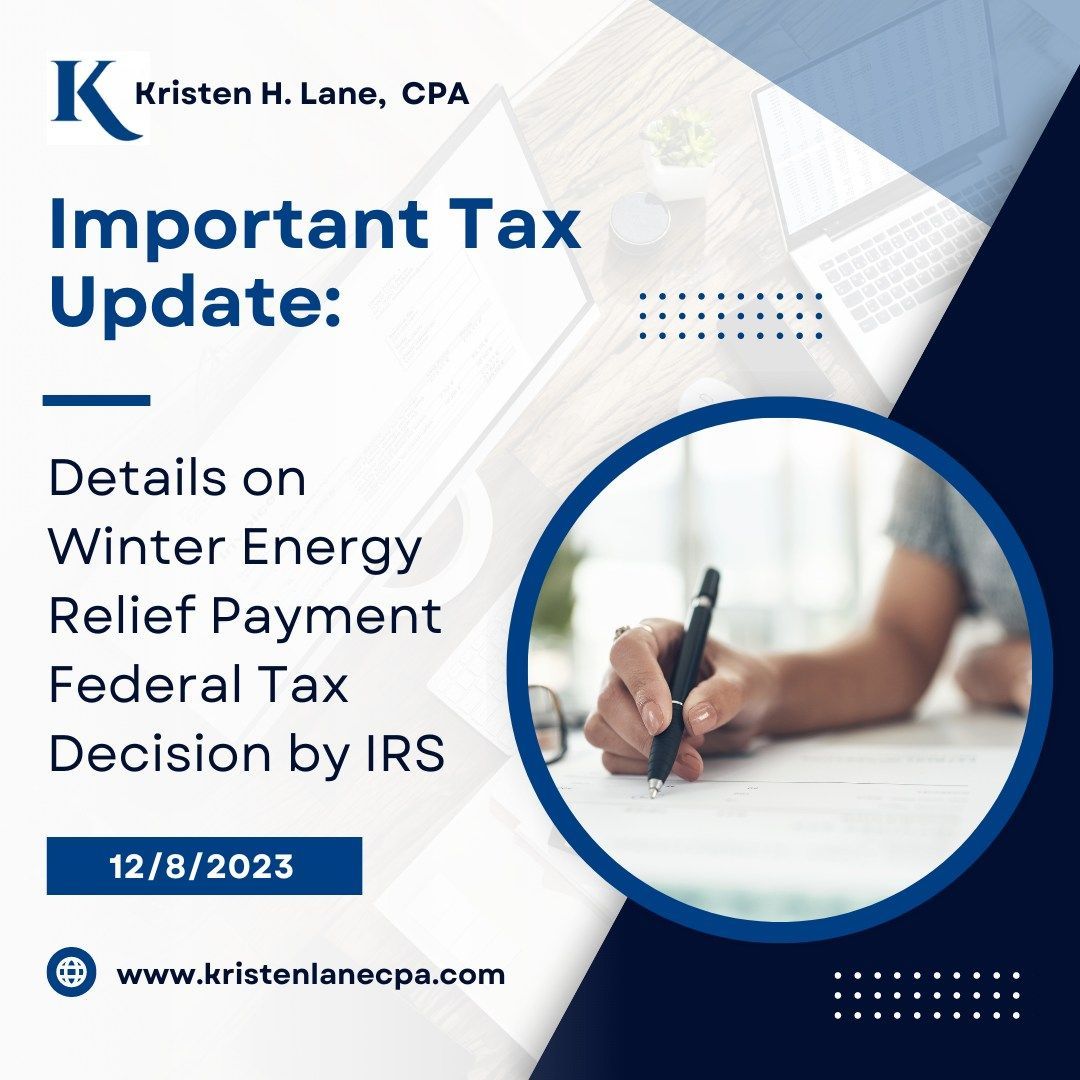Call us: 207-286-1662
Corporate Transparency Act
Beneficial Ownership Information Reporting Requirement

Dear Valued Client,
The Corporate Transparency Act (“CTA”) was enacted into law as part of the National Defense Act for
Fiscal Year 2021. The CTA requires the disclosure of the beneficial ownership information (otherwise
known as “BOI”) of certain entities from people who own or control a company.
It is anticipated that 32.6 million businesses will be required to comply with this reporting requirement.
The intent of the BOI reporting requirement is to help US law enforcement combat money laundering, the
financing of terrorism and other illicit activity.
The CTA is not a part of the tax code. Instead, it is a part of the Bank Secrecy Act, a set of federal laws that
require record-keeping and report filing on certain types of financial transactions. Under the CTA, BOI
reports will not be filed with the IRS, but with the Financial Crimes Enforcement Network (FinCEN), another agency of the Department of Treasury.
I am here to help assess if you have a BOI reporting requirement and how to meet the reporting obligation.
This will be a discussion point in connection with filing your 2023 income tax returns, if applicable.
In the meantime, below is preliminary information to consider as we are now in the implementation period
for this new reporting requirement.
What entities are required to comply with the CTA’s BOI reporting requirement?
Entities organized both in the U.S. and outside the U.S. may be subject to the CTA’s reporting
requirements. Domestic companies required to report include corporations, limited liability companies
(LLCs) or any similar entity created by the filing of a document with a secretary of state or any similar office
under the law of a state or Indian tribe.
Domestic entities that are not created by the filing of a document with a secretary of state or similar office
are not required to report under the CTA.
Foreign companies required to report under the CTA include corporations, LLCs, or any similar entity that is formed under the law of a foreign country and registered to do business in any state or tribal jurisdiction by filing a document with a secretary of state or any similar office.
Are there any exemptions from the filing requirements?
There are twenty-three categories of exemptions. Included in the exemptions list are publicly traded
companies, banks and credit unions, securities brokers/dealers, public accounting firms, tax-exempt
entities, and certain inactive entities, among others. Please note these are not blanket exemptions and
many of these entities are already heavily regulated by the government and thus already disclose their
BOI to a government authority.
In addition, certain “large operating entities” are exempt from filing. To qualify for this exemption, the
company must:
a) Employ more than twenty people in the U.S.
b) Have reported gross revenue (or sales) of over $5M on the prior year’s tax return; and
c) Be physically present in the U.S.
Who is a beneficial owner?
Any individual who, directly or indirectly, either:
• Exercises “substantial control” over a reporting company, or
• Owns or controls at least 25 percent of the ownership interests of a reporting company
An individual has substantial control of a reporting company if they direct, determine or exercise
substantial influence over important decisions of the reporting company. This includes any senior officers
of the reporting company, regardless of formal title or if they have no ownership interest in the reporting
company. The detailed CTA regulations define the terms "substantial control" and "ownership interest" further.
When must companies file?
Different filing timeframes are depending on when an entity is registered/formed or if there is a
change to the beneficial owner’s information.
• New entities (created/registered after 12/31/23) — must file within 30 days.
o There is proposed rulemaking allowing for new entities created in 2024 only to extend the 30-
day timeframe to 90 days.
• Existing entities (created/registered before 1/1/24) — must file by 1/1/25.
• Reporting companies that have changes to previously reported information or discover inaccuracies
in previously filed reports — must file within 30 days.
What sort of information is required to be reported?
Companies must report the following information: full name of the reporting company, any trade name or
doing business as (DBA) name, business address, state or Tribal jurisdiction of formation, and an IRS
taxpayer identification number (TIN).
Additionally, information on the beneficial owners of the entity and for newly created entities, the company
applicants of the entity is required. This information includes — name, birthdate, address, and unique
identifying number and issuing jurisdiction from an acceptable identification document (e.g., a driver’s
license or passport) and an image of such document.
Understand your reporting requirement.
Penalties for willfully not complying with the BOI reporting requirement can result in criminal and civil
penalties of $500 per day and up to $10,000 with up to two years of jail time. Please contact my office today at 207-286-1662 if you have any questions. As always, planning can help you comply and
understand your filing obligations.
Sincerely,
Kristen H Lane CPA


All Rights Reserved | Kristen H Lane, CPA